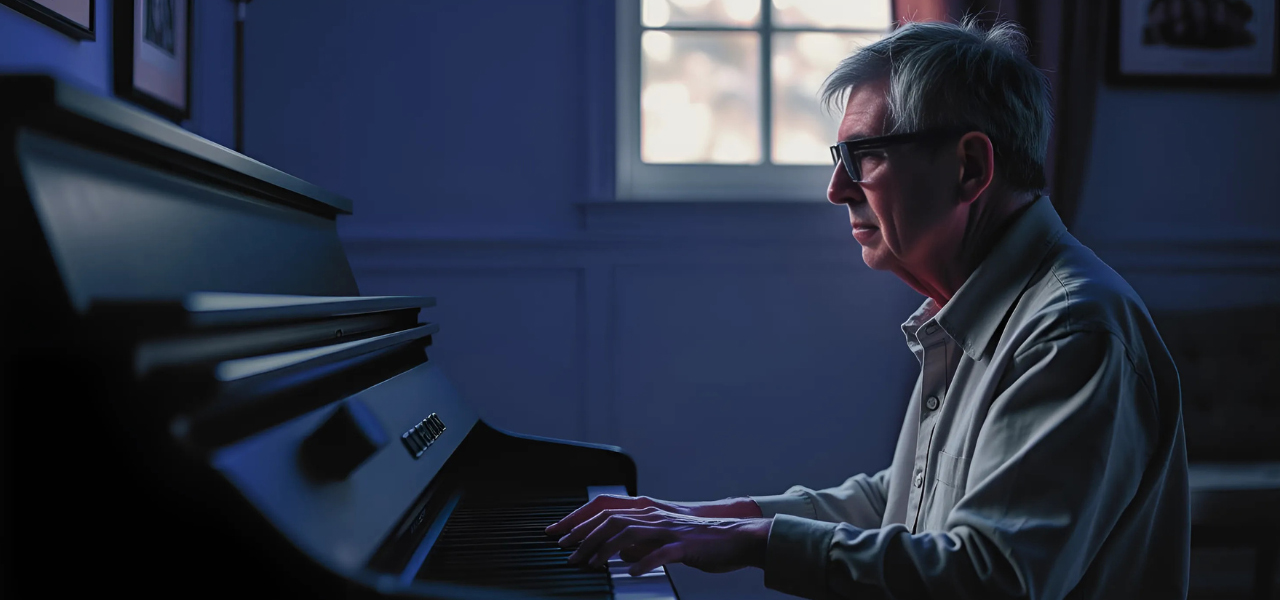How to Choose a Creative Profession If You Cannot See?
Creativity is not limited by vision. Voice, imagination, a sense of rhythm, and the ability to tell stories open horizons for self-realization. Even without visual perception, it is possible to find a profession that will bring inspiration and become a real source of income. What can help you identify your strengths, what creative professions are accessible without sight, and what examples of successful people can inspire you to take your own path?

How to Understand Your Strengths
Identifying your strengths is the first step toward choosing a profession that is both inspiring and realistic. Two points are essential here: take into account your limitations and view them not as obstacles, but as guidelines.
- Self-assessment and analysis of experience: Evaluate what comes easily to you: strong hearing, rich imagination, the ability to listen and notice nuances, talent with words spoken or written.
- Considering limitations: If vision is absent, it is important to understand what specific barriers exist. These may be limitations in reading, adjusting technical equipment, or working with visual tools. Awareness of these aspects will help you choose a more accessible path.
- Realism and inspiration: Combine the practical with the desired. If you are great with words and have an innate sense perception, focus on audio, speech, sound, text, sound design, or storytelling. This balance can align your abilities with your calling.
Starting your path step by step:
- Highlight your strongest skills: expression, vocal ability, creative thinking, empathy.
- Study examples of successful people with similar skills.
- Try a small project: record a podcast, create an audio essay, a flyer, or a blog in audio format.
- Seek support: accessible tools (screen readers, dictation, adapted technology), online workshops, mentors.
- Gradually increase the complexity: move from small projects to a portfolio, then to collaborations or wider distribution.
- Start simple: short audio formats, voice storytelling, brief narratives. As your confidence grows, expand the format.
Professions Where Vision Is Not Essential
In these areas, the main factors are voice, thinking, and creativity. They are what create meaning and beauty, not visual perception.
Working with sound and words, you can become a content creator, musician, storyteller, podcaster, or writer. In these professions, the ability to hear, to feel the subject, to convey it emotionally, and to structure information is more important. You can become a podcaster, creating formats about life, culture, or people. You can create music using audio editors, write texts, audiobooks, articles, or blogs.
To succeed in such fields, creativity and mastering technology are crucial: audio editors, dictation software, voice-over programs. You can start independently—record a story, sing a melody, voice a text. Then, find a platform or community that accepts works from blind creators.
There are platforms and organizations worldwide that support creative people with visual impairments. For example, Sound Without Sight is an international community initiative bringing together musicians, audio engineers, and professional sound designers to share resources and opportunities. Likewise, Blind Power Company provides a job portal for people with visual impairments and disabilities, where you can upload your résumé and learn about current vacancies.
Opportunities in Creative Fields
Today, there are many successful cases of people with visual impairments finding themselves in creative professions and achieving recognition. Their experiences inspire and prove that voice, speech, and the ability to work with sound can become full-fledged professions and even personal brands.
- Lucy Edwards (UK) — an influential blogger, journalist, and activist. She lost her sight but managed to build a career: she became the first blind presenter on BBC Radio 1 and launched the podcast Eurovision Described, where she narrates what happens at the contest for visually impaired audiences.
- Tommy Edison (USA) — a well-known YouTuber, radio host, and film critic with a sense of humor. Blind from birth, he gained popularity thanks to film reviews based solely on sound, music, and dialogue. His channel is called Blind Film Critic.
- Peter White (UK) — a journalist and DJ, blind from birth. He has worked for many years on BBC Radio 4, hosting the program In Touch for blind and visually impaired people, and he regularly covers topics of science and education related to disability.
- Louis Braille (France) — the inventor of Braille, a writing system that gave millions of blind people the opportunity to read and write. His system became the foundation of blind written culture and influenced education worldwide.
- Stevie Wonder (USA) — a legendary musician, singer, and composer, blind from birth. He has won numerous Grammy Awards and became a symbol that creativity and talent know no limits.
Conclusion
The world is moving toward inclusivity and recognition of talent, regardless of physical perception. With the development of accessible technologies, inclusive policies in media, publishing, and sound platforms, new paths for creativity continue to emerge.
Communities, funds, and initiatives such as Sound Without Sight create opportunities for connection, knowledge exchange, and growth. Employers increasingly value abilities rather than limitations. It is becoming more realistic to speak of a career where blindness is not a barrier but a unique way of perception that gives a distinctive voice.
The creative field for people without vision is an entire journey filled with meaning, inspiration, and new expressive possibilities.
